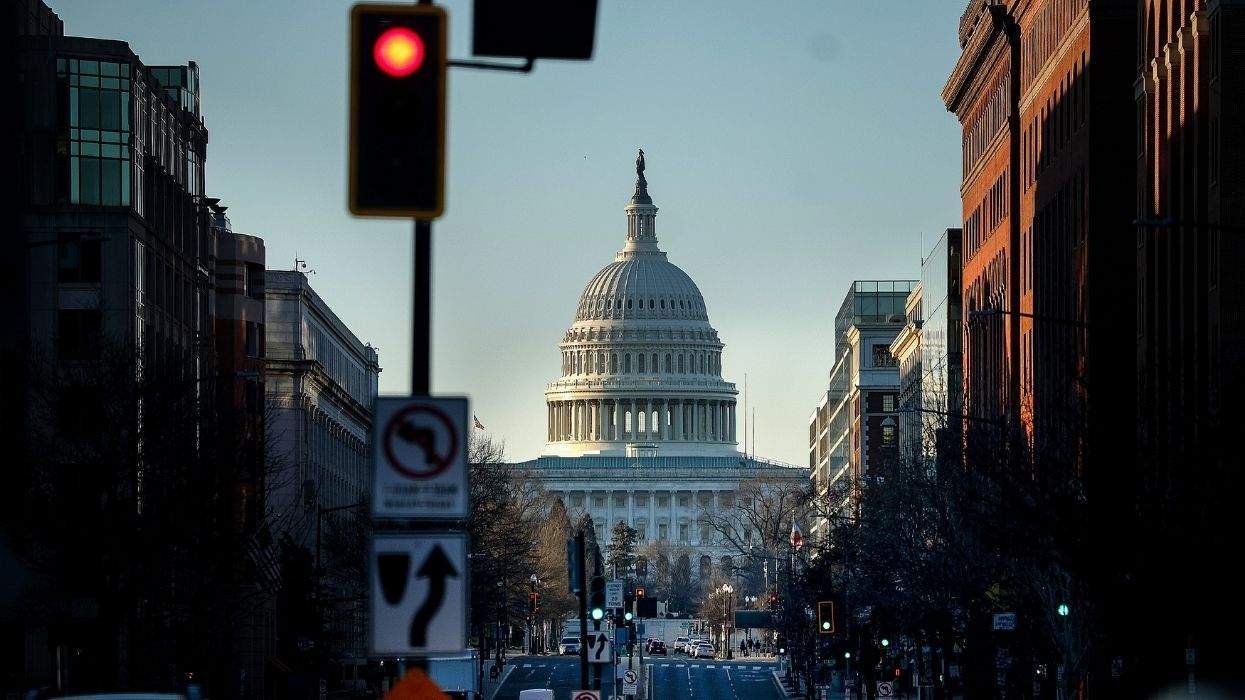United Nations officials and human rights defenders from around the world gathered Thursday in New York for "Stop Bullying," a high-level panel discussion focused on ending discrimination and violence against LGBT people in recognition of International Human Rights Day. The occasion provided a rare opportunity for those working on the issues to assess the changed landscape after a year of breakthroughs set against the backdrop of global revolutions.
"We're seeing progress at the highest levels of the U.N.," said Jessica Stern, acting director of the International Gay and Lesbian Human Rights Commission, which organized the event at U.N. headquarters with a coalition of member states and Human Rights Watch. "There's a positive trend, and the question we're asking ourselves is, 'How do we maintain this moment and prevent backlash?'"
High on the list of accomplishments is the resolution narrowly adopted by the Human Rights Council in June, the first U.N. resolution specifically to address LGBT rights. The carefully worded resolution expressed "grave concern" about acts of violence and discrimination based on sexual orientation and gender identity, and requested the first-ever report on the conditions of LGBT people worldwide, soon to be released by the High Commissioner for Human Rights in Geneva. Some African and Islamic states and Russia tried to block the resolution.
Commenting on the emphasis on discrimination, which some consider a muted argument for LGBT human rights, U.N. assistant secretary general Ivan Simonovic said, "It's the strongest point. We are sometimes looking overly cautious at the U.N. because we are not speaking about rights to have sexual preferences, but we are doing that in order not to scare off some countries and to bring them on board."
Simonovic said that remarks from U.N. secretary-general Ban Ki-moon against the criminalization of LGBT people last year, the first such comments ever from a sitting secretary-general, also marked a "turning point." He said it was "no secret" that the secretary-general has incorporated the issue into his "generic agenda," including his recent conversations with African leaders.
Developments in Africa represent an area of urgent concern. Panelist Ifeanyi Kelly Orazulike, executive director of the International Center for Advocacy on the Right to Health, spoke about the bill pending in Nigeria that would impose jail sentences of up to 14 years for same-sex marriages, which are already illegal in the country. The measure, which appears to be speeding through the legislature on the fourth attempt, this time includes penalties for public displays of same-sex affection and for organizing gay clubs and organizations. LGBT advocates fear the prospective law could thwart the work of HIV/AIDS outreach groups, and they are scrambling to lobby lawmakers about the unintended consequences on public health.
"They want to shut us up totally," said Orazulike, who has received Internet death threats against himself and his son. He is due to return to the country next week after four months of study in the United States and said that he feels "very, very unsafe."
"The bill will drive the LGBT community underground and will promote bullying and blackmail, and also will promote hate crimes and gay bashing," he told the audience.
Orazulike said in an interview with The Advocate afterward that activists have been surprised by the rapidity and ferocity of the latest attempt to pass the antigay bill. He attributed the push to a desire from the country's leadership to "distract" from the roster of pressing problems with infrastructure, school strikes, and fuel subsidies.
He said his organization was in discussion with the U.S. Department of State about the new Global Equality Fund. The fund announced this week in a speech by Secretary of State Hillary Rodham Clinton at the U.N. in Geneva commits $3 million to help civil society organizations working on LGBT issues around the world. Orazulike said his group could use money "to build more allies and to do proper education, because people do not understand what it means to be gay."
"That's not enough," said Orazulike, when asked about the initial amount dedicated to the fund. "But let's see how that plays out, first of all. An impact with a little amount would increase the budget, I feel."
Speakers overall welcomed the Clinton speech and memorandum from President Obama as a watershed in American foreign policy. "The U.S. government has now committed itself to playing a leading role in combating violence and discrimination based on sexual orientation and gender identity," said Kenneth Roth, executive director of Human Rights Watch, who moderated the panel.
Simonovic, who attended the Clinton speech in person, said, "We were very much encouraged."
While the American announcements have focused unprecedented attention on LGBT human rights, they also highlight the complexities of reaching what Secretary Clinton called "global consensus" on the ground. The United States is one among 193 member states of the United Nations, albeit a highly influential one.
"We are not just LGBT activists," said Nadine Moawad of the Coalition for Sexual and Bodily Rights in Muslim Societies. "We cannot extricate these identities from the other issues. We cannot certainly, as countries or as organizations, with the same hand, fund a war or an invasion or an occupation or endorse geopolitical issues that are leading to the death and imprisonment and torture of a lot of people but with the same hand say, 'But we want to free the LGBTs and we want to protect LGBT rights.' That's the tension, I think."
Other panelists included Doi Nakpor of the Mplus Foundation in Thailand, UNESCO director Philippe Kridelka, and Judy Shepard. The mother of Matthew Shepard captured the point on which all speakers agreed.
"At the core of it, we are all human beings, with the same dreams, the same aspirations," she said. "It is a matter of respect and human dignity."
Can Momentum for LGBT Rights Continue at U.N.?















Charlie Kirk DID say stoning gay people was the 'perfect law' — and these other heinous quotes
These are some of his worst comments about LGBTQ+ people made by Charlie Kirk.